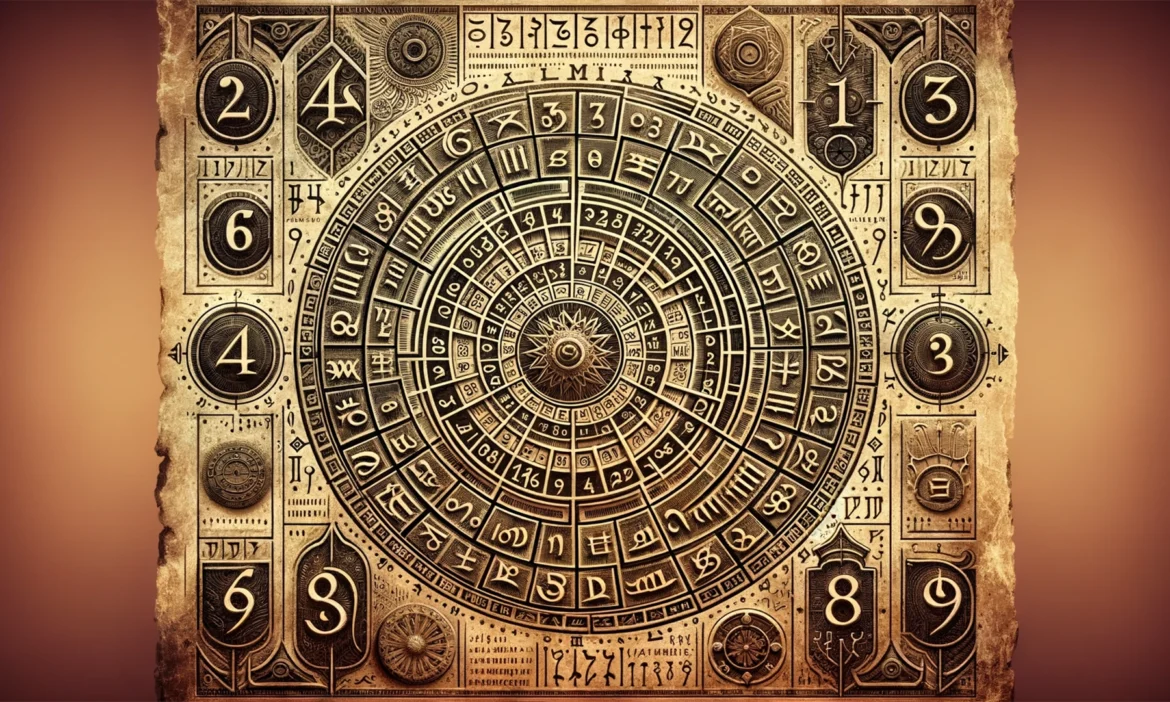The Origins of Numerology in Ancient Cultures
Numerology is often thought of as a modern metaphysical practice, but its roots stretch back thousands of years. Ancient civilizations recognized numbers not just as mathematical symbols but as carriers of spiritual meaning. In Egypt, Mesopotamia, China, and India, numbers were linked to cosmic principles, used to interpret the universe and human destiny. Numbers were seen as sacred codes that connected earthly existence to divine order. These early cultures laid the foundation for numerology as we know it today.
Numerology in Ancient Egypt and Mesopotamia
In Egypt, numbers were considered powerful symbols associated with gods and creation. The pyramids, temples, and monuments reflect precise mathematical alignments that also carried spiritual significance. Mesopotamian cultures, particularly the Babylonians, studied numbers in relation to astronomy and cycles of time. Their numerical systems influenced later traditions, embedding the idea that numbers revealed hidden truths about existence.
Pythagoras and the Birth of Western Numerology
The Greek philosopher Pythagoras is often credited as the father of modern numerology. Living around 570–495 BCE, he founded a school that studied mathematics, philosophy, and spirituality. Pythagoras believed numbers were the building blocks of reality and that each held a unique vibration and meaning. For example, the number 1 symbolized creation and unity, while 2 represented duality. His teachings established the system of reducing names and birthdates to single digits, which continues to shape numerology practices today.
Numerology in Ancient India and Vedic Traditions
In India, numerology developed alongside astrology within Vedic traditions. Numbers were deeply tied to planetary influences and karmic patterns. Vedic numerology linked each number to a planet, creating a system where an individual’s name and birth date reflected cosmic forces. For example, the number 1 was associated with the Sun, while 7 was linked to Ketu, a spiritual node. This system emphasized destiny and the alignment of human life with divine cosmic rhythms.
Chinese Numerology and the Power of Harmony
Chinese culture also embraced numerology, particularly through its symbolic connection to harmony, luck, and prosperity. Certain numbers became culturally significant, such as 8, which represents wealth and success, and 4, which is considered unlucky due to its phonetic similarity to the word for death. The I Ching, an ancient Chinese text, also incorporates numerical symbolism through its 64 hexagrams, highlighting how numbers reveal patterns of change and balance in life.
Numerology in the Middle Ages and Renaissance
During the Middle Ages, numerology blended with mystical traditions such as Kabbalah, alchemy, and early astrology. Jewish mysticism used numbers to interpret the hidden meanings of Hebrew scriptures, a practice known as Gematria. In the Renaissance, scholars revisited Pythagorean teachings, combining them with esoteric philosophies. This period reinforced the belief that numbers held divine secrets, guiding human understanding of both science and spirituality.
Numerology in Modern Western Thought
By the 19th and 20th centuries, numerology evolved into a popular metaphysical practice in Western culture. Thinkers like L. Dow Balliett and Dr. Julia Seton popularized the idea that numbers influenced human personality and destiny. The practice gained traction through books, lectures, and spiritual movements that combined numerology with other esoteric studies. In the modern era, numerology has expanded into self-help, personal development, and holistic practices, appealing to those seeking spiritual guidance in everyday life.
Numerology in Today’s Digital Age
In the 21st century, numerology has adapted to the digital world. Online calculators, mobile apps, and digital readings make it accessible to millions of people worldwide. Social media has amplified interest, with individuals sharing repeating number sightings—like 11:11 or 444—as signs of synchronicity and spiritual guidance. While critics dismiss numerology as pseudoscience, its popularity reflects a universal human desire to find meaning and connection in the patterns of life.
The Enduring Appeal of Numerology
The persistence of numerology across time and cultures highlights its enduring appeal. Whether in ancient temples, philosophical schools, or modern apps, numbers continue to fascinate people as symbols of hidden knowledge. Numerology offers a framework to understand life’s mysteries, providing reassurance and direction in times of uncertainty. Its blend of simplicity and depth allows it to remain relevant, bridging the gap between science, spirituality, and human curiosity.
Conclusion: Numerology Through the Ages
From ancient Egypt and Babylon to Pythagoras, India, and modern digital platforms, numerology has traveled across civilizations, evolving yet retaining its essence. It reflects humanity’s search for meaning, a desire to see life not as random but as patterned and purposeful. By studying its history, we see how numbers have always been more than symbols—they are keys to understanding ourselves and the universe. The continuity of numerology shows that while times change, the human quest for insight through numbers remains timeless.


